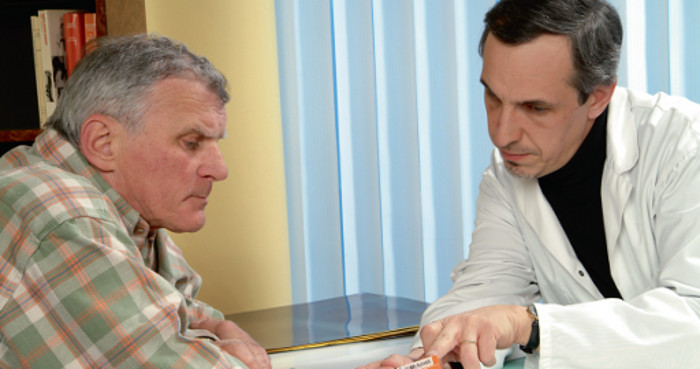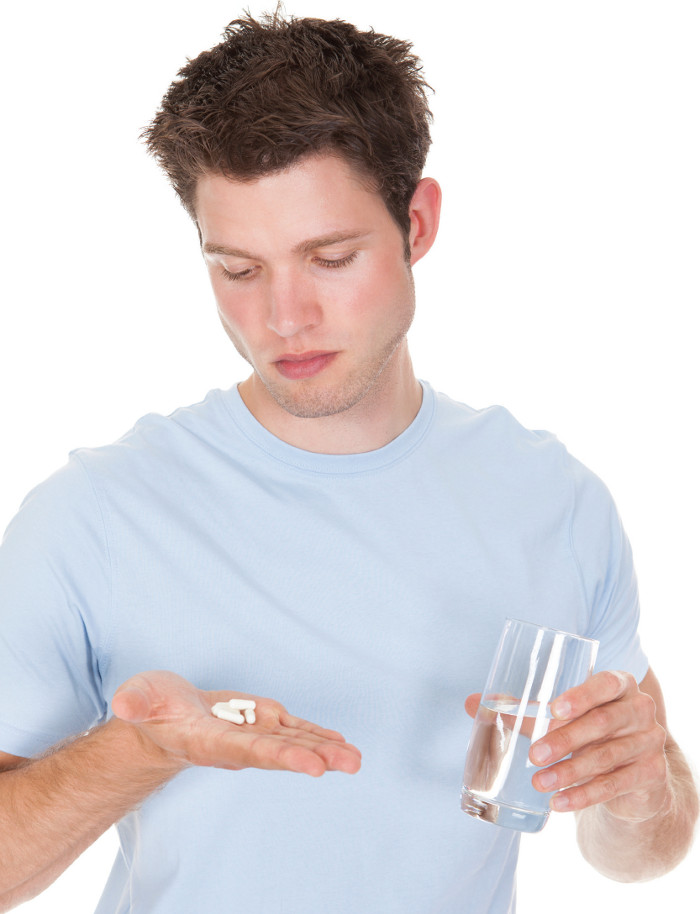Conditions

From boys to men
In Conditions
Bookmark
Record learning outcomes
Recent reports reveal yet again that men are reluctant to access health services, despite their increased risk of disease and premature death. Pharmacy can help to engage men in healthcare and improve outcomes for future generations

Â
Across Europe, men are at increased risk of premature death from all of the health conditions that should affect men and women equally. Why? Well, according to the Men’s Health Forum (MHF), men are more likely to engage in behaviours that pose a health risk and are less likely to acknowledge health issues. “The reason why men tend to have worse health outcomes than women often links to work,†explains Colin Penning, external affairs manager at the MHF.
“Men are around twice as likely as women to work full-time, so they have reduced access to health services. They’re also more likely to commute and do shift work.†Health literacy, which Colin defines as “being aware of the health services available and understanding symptoms†is also worse among men. In light of this, it’s unsurprising that men often underutilise professional healthcare services.
In numbers
To delve deeper into this and uncover the approaches men do take to get health advice, the National Children’s Bureau (NCB) recently conducted two surveys for its Improving male health for the next generation reports. The first was carried out on 138 men aged 16 and over between July and December 2014. The second was conducted on 32 boys aged nine to 11 in January 2015.
The results revealed that when it comes to young men seeking health advice, there is no substitute for healthcare professional (HCP) interaction. However, their reluctance to access health services suggests that accurate information and sound advice is not always sought or acted upon. In fact, according to the National Pharmacy Association (NPA), men are twice as likely as women to take a new prescription medicine without first reading the patient information leaflet or seeking professional advice.
The results also noted men’s reluctance to seek help for emotional or psychological issues. Only two-fifths would seek help of their own accord, while almost one in five would avoid seeking help at almost any cost. Men aged 25 to 39 were the least willing to seek help for mental health issues, followed by men aged 16 to 24.

Reassuringly, 59 per cent of boys considered ‘talking about a problem’ a healthy thing to do. Nineteen men reported the most extreme resistance to seeking help (‘avoid at almost any cost’) for a given physical health issue. Of these, seven were among the 25 men who would avoid using health services for emotional or physiological issues at almost any cost and three would delay doing so until prompted by somebody else’s concern.
“It’s much easier to admit to your boss that you need time off due to a physical illness, such as flu, than having a mental illness against your name and seeming ‘weak’,†says Colin. A key driver for men when accessing healthcare appears to be the impact of their health on daily functioning. Although fewer than a third of respondents would act early on their own accord following a physical change or symptom, half of men would act early if the symptom hampered their daily functioning, rising to two-thirds if functioning was impaired by an accident or illness.
This suggests a dangerous tendency for men to disregard their health needs until symptoms become too severe to ignore. “Men are more fatalistic than women and just see certain symptoms as a normal part of ageing,†explains Colin. “Symptoms often seem normal to men as they see their friends suffering.â€
Men’s self-reported readiness to access health services varied with age, according to the results. Younger men were more likely to delay check-ups or screenings. For physical, out of the ordinary symptoms, the 25 to 39 age group were the least likely to ‘act early of their own accord’, but the most likely to ‘put off but act on own concern eventually’. Where young men claimed to act early of their own accord, they were also disproportionately likely to report above average knowledge of how to use health services.
The opposite was true for those who would avoid seeking help at any cost. Subsequently, confidence in how to navigate health systems appears to be connected to willingness to use such services.
Â
Men's health week
Men’s Health Week (15 to 21 June) aims to raise awareness of preventable health issues and encourage men to seek professional advice for health problems. Visit: www.menshealthforum.org.uk/mhw to see how your pharmacy could get involved.
Â
What needs to change?
“The way to target boys and young men is to make medical information seem relevant to them,†says Colin. When adult respondents were asked what changes would enable boys and young men to address their health needs, social factors were listed as the most significant. Ninety-three per cent believe that the way boys and men talk about health with their peers needs to change, while 91 per cent believe the social expectations of men and women need to be confronted.
The surveys also analysed the changes that men wish to see when seeking help for emotional or psychological issues. Of the 13 men who would ‘act early of their own accord’, seven felt that healthcare communication via professionals needed to change significantly, while others wanted to see change in how males discuss health with their peers, as well as role models, family attitudes and communication. The overall findings suggest that boys could benefit from hearing men and women characterised as equally susceptible to physical and mental health issues, and equally responsible for their own health and wellbeing.
However, Colin insists that in order to engage men with their health, it’s critical to make them aware of the services that fit in around their schedule. “A lack of awareness drives a lack of presentation,†he says. “Health services don’t work for women or men if they have to work full-time to pay the bills.â€
According to Emily Hamblin, senior development officer for health and wellbeing at the NCB and co-author of the reports, further research into how to reach and engage with men of all ages is required: “Improving both mental and physical health for boys and young men needs a multi-pronged approach involving policymakers, services, individual health professionals, parents, carers, teachers, children’s sector professionals and, crucially, boys themselves. The design of specific interventions should involve boys and young men, and further research with them is needed to better understand what types of interventions work for which groups, purposes and circumstances.â€
Â
It's a guy thingÂ
Smoker’s cough
- What is it? According to public health charity ASH, 22 per cent of men and 17 per cent of women in the UK smoke. There is therefore a greater incidence of smoker’s cough among men.
- Advise: discuss the benefits of quitting and the approaches available, including harm reduction. Explain the different smoking cessation services and NRT products available. A smoker’s cough is generally productive. While considering quitting, an expectorant can help to increase bronchial secretions and reduce mucus stickiness, making it easier to cough up.
Dandruff
- What is it? Dry white or grey flakes of dead skin in the scalp or hair. Reportedly more common in men than women.
- Advise: wash with a mild shampoo containing tea tree oil; avoid scratching the scalp; avoid hair styling products; get sensible sun exposure. Anti-dandruff shampoo can be effective if applied correctly. Active ingredients include zinc pyrithione, salicylic acid and selenium sulfide.
Cluster headache
- What is it? Excruciating pain in one side of the head. Although rare, four out of five sufferers are male.
- Advise: avoid alcohol and extreme rises in temperature. Refer customers with cluster headaches to the pharmacist.
Erectile dysfunction
- What? Also known as impotence, erectile dysfunction is the inability to get and maintain an erection.
- Advise: maintain a healthy weight; don’t smoke; minimise alcohol consumption; exercise regularly; manage stress. Refer these customers to the pharmacist.
Â
Confidence is key
Recent research from TENA Men has revealed that one in two men in the UK (58 per cent) do not openly talk about their health, with up to 90 per cent choosing to ignore a health concern in a bid to avoid discussing their concerns. For many, it is the prospect of discussing uncomfortable health problems that drives a reluctance to seek help, with many men now opting for alternative methods of diagnosis, according to the research.
With 29 per cent of UK men admitting they should try harder to look after their health, pharmacy staff are in an ideal position to encourage these conversations by offering practical guidance and product recommendations, explains Donna Wilson, TENA training and brand manager. “When it comes to engaging male customers, confidence is key,†adds Donna. She recommends these three communication tips to ensure customers leave the pharmacy feeling comfortable and confident:
- Reassure
- Educate
- Advise.
Â
How can pharmacy help?
According to research from the NPA, men visit a pharmacy an average of four times a year, compared to 18 times for women. What’s more, Danish research suggests a link between men’s lower use of primary care and higher rates of hospitalisation. However, according to Colin, pharmacies are well placed to assist men in managing their health: “Community pharmacy provides men with what they’re looking for – an anonymous service that’s flexible in time and location.â€
Yet in order for men to utilise pharmacies optimally, it’s vital to advertise what they offer. “Pharmacy needs to increase awareness among men that they are experts and are open far longer than other primary health services,†adds Colin. “Men view pharmacies as just racks of make-up and no spanners.†Back in 2012, during Ask Your Pharmacist week, thousands of pharmacies displayed ‘two small steps for man’ posters, encouraging men to enter pharmacies and enquire about the free support available.
“We want all patients to work in partnership with HCPs to get a firmer grip on their medicines and wellbeing,†says an NPA spokesperson. “We want boys and young men to learn early on that pharmacies are much more than just a place to pick up prescriptions.†NPA members held in-store events, with one offering men free health MOTs while their car had an MOT at a neighbouring garage.
They also held 50 roadshows at a number of ‘male friendly’ venues, including Leeds United Football Club. However, according to Colin, this approach is not always effective: “Campaigning at sports stadiums is a good way to raise awareness, but the challenge on match days is that men are there for a reason, not for health information. What’s really effective is when community foundations use sports clubs to run events.â€
The MHF previously worked with Tottenham Hotspur to run events throughout north London and used the club’s IT suite to set up an online forum where men could chat to GPs. Colin recommends that pharmacies work with local employers to engage with men, as well as raising awareness of the services they offer through window displays and posters.
“If you can’t get men through the door, services are wasted, regardless of how trained the staff are,†he adds. Once they are inside the pharmacy, it’s important that staff approach men and engage them in a discussion. “Pharmacy teams should not be afraid to start a conversation with a patient who seems uncomfortable about seeking advice,†says the NPA.
“Try to build a rapport with the customer first to put them at ease. Simple techniques such as matching someone’s body language, coming from around the counter to remove that barrier and being respectful of personal space can all help.†The NPA offers scratch cards on smoking, exercise, alcohol and sexual health to assist pharmacy teams in initiating such conversations.
Pharmacies are also well placed to support sufferers of mental health issues. “Pharmacists can offer advice to maintain good mental health,†says the NPA. “They can also advise on how to minimise stress, anxiety and insomnia.â€
The NPA suggests that pharmacies consider offering the following services:
- Supervised consumption of substitute treatments for drug addiction
- Needle and syringe exchange schemes
- Signposting to mental health support for patients and their families
- Lifestyle advice, e.g. alcohol intake.

According to one study, one in 10 men aged 35 and over have purchased a prescription only medicine without a prescription
Â
Illicit medication
A study of 935 men aged 35 and over revealed that one in 10 had purchased a prescription only medicine (POM) without a prescription – 50 per cent of which was done online. This increased to 67 per cent for erectile dysfunction. “Men often do what ‘Dr Google’ tells them,†explains Colin Penning, external affairs manager at the Men’s Health Forum.
“Issues such as erectile dysfunction drive some men to buy potentially harmful products online. Even if it’s a good product, erectile dysfunction has been linked to heart disease, so these men miss out on the benefits of seeing a healthcare professional.â€
Â
To test your knowledge on this topic, complete the team training learning module.
Community pharmacy provides men with what they’re looking for – an anonymous service that’s flexible in time and location
